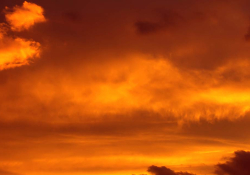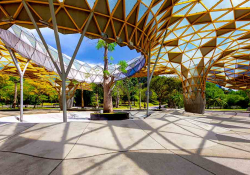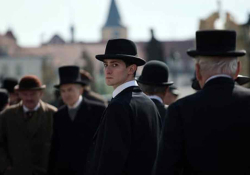The first time I spoke with Anthony Shadid was over the phone in September of last year, while driving north on Interstate 35 between Oklahoma City and Stillwater. I can't recall where in the world of foreign reportage he told me he was, but I do distinctly remember being far more nervous than I'd been at any time during my undergraduate studies at the University of Oklahoma, which I'd finished only months earlier. After a series of emails with the veteran Middle East reporter and consultations with World Literature Today editor and OU professor Daniel Simon — who'd encouraged me to research and write a prospectus for a future issue focused on literary journalism— we set up a time to talk about a feature in the magazine concerning his forthcoming memoir "House of Stone." When the call ended, I actually fist-pumped.
I was floored too when the two-time Pulitzer winner granted a precious hour of his Christmastime visit to Oklahoma City to speak with a 23-year-old life and arts contributor who could boast of scant few appearances on the student newspaper's A-1. It felt as if Mickey Mantle had stopped by the local batting cage, offering pointers. Desperate to impress, I read "House of Stone" cover to cover in two short weeks, as well as much of the coverage that earned him a pair of Pulitzers as a foreign correspondent for the Washington Post.
An hour of conversation was all it took for me to realize that Anthony was a romantic in a profession so full of cynics and critics, one with a command of the language that's typically reserved for writers of serious fiction.
December came and we met at the Starbucks in Nichols Hills in Oklahoma City, not far from where Shadid's parents, the offspring of Lebanese immigrants, reside. He rose to greet me when I walked in about three minutes before noon, both of us excited — as all writers are — by the prospect of coffee and conversation. It was clear he hadn't been home long (he'd returned from Lebanon to the States the previous day, in fact, stopping for an interview with NPR's Terry Gross on his way home to Oklahoma) by the reddened skin on his neck and face, still raw from a shave and the shock of the sudden change in climate.
We spoke about his book, his job, his travels, for about 45 minutes, and while I was apprehensive in the early going, his thoughtful, thorough responses to my questions and general lack of pretense granted me confidence, and by the time the coffee cooled, it felt more like fellow travelers talking shop than a master imparting wisdom to an apprentice. Though in reality it was very much the case of the latter.
He insisted I call him Anthony, and he spoke with the same careful eloquence that he wrote, editing his thoughts for conciseness, clarity, and context as only a man who'd devoted his entire professional life to doing so could. He didn't disguise or apologize for his massive ambition, nor his great love for the culture of his ancestors, nor his hope for a peaceful Middle East forged by the emergence of hyperlocal identities. Instead, he bound them all together into sterling work that also hinged on his distinct research, which was equal parts fearless, tireless, and observant.
An hour of conversation was all it took for me to realize that Anthony was a romantic in a profession so full of cynics and critics, one with a command of the language that's typically reserved for writers of serious fiction. It's tempting to declare the Middle East a darker corner of the world now that it's missing his illuminating dispatches, but I remain confident in the humanity he sought out and bore witness to there, even when it meant risking his grip on his own. He was a man fully invested in the belief that you could build something beautiful in a world full of destruction and insecurity.
When we went our separate ways, Anthony gave me his business card, which I now keep in my wallet as a reminder of that hour I spent with him. My editor at Oklahoma Gazette Phil Bacharach, a high school friend of Anthony's, wrote last week that it's a "cruel irony" his life was claimed by an asthma attack while under the radar in Syria. That card changed from a pleasant symbol of a formative encounter into a reminder that life is too fleeting to not build something beautiful, to believe that humanity can spring up in even the driest of deserts. I'll treasure that card for a long time to come.
Matt Carney
February 19, 2012
Editorial Note: Carney's interview "Reclaiming What Was Lost: A Conversation with Anthony Shadid," is in the print and online edition of WLT.










